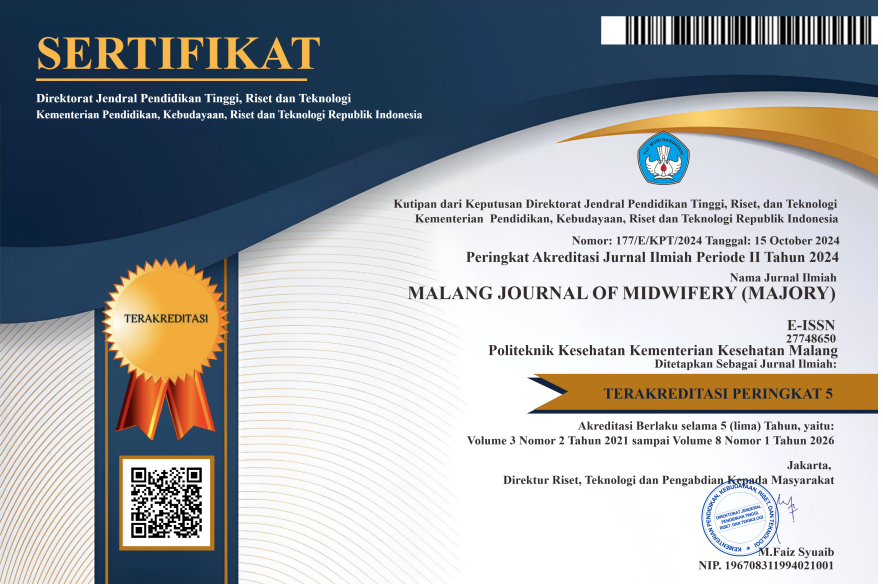Overview Of Reproductive Health In Women In Agricultural Areas Due To Exposure To Pesticides
DOI:
https://doi.org/10.31290/majory.v6i1.4131Kata Kunci:
kehamilan, kesehatan reproduksi, paparan, pertanian, pestisidaAbstrak
Exposure to pesticides during pregnancy can affect the incidence of developmental disorders in children and reproductive disorders in mothers. Exposure to pesticides during pregnancy can increase the incidence of Low Birth Weight (LBW) and mothers who are exposed will also be at risk of experiencing anemia during pregnancy and can even cause miscarriage to death in the mother and fetus. This study was conducted to identify potential associations between pesticide exposure during pregnancy and adverse maternal and fetal outcomes. The literature search process carried out in this literature review uses databases such as Google Scholar, PubMed, and ScienceDirect with a publication year range of 2016 to 2023. Some of the keywords used are "Exposure", "Pesticide", "Pregnancy", "Agriculture", and "Reproductive Health". The evidence uncovered in this study suggests a potential link between pesticide exposure during pregnancy and adverse maternal and fetal health outcomes including preterm delivery, LBW, congenital malformations, gestational diabetes, preeclampsia, and impaired fetal growth. In addition, exposure to pesticides is also associated with potential long-term health consequences for mothers and their children, such as an increased risk of obesity and neurodevelopmental disorders. After knowing the impact caused by exposure to pesticides on pregnant women, then as a nurse can provide education or counseling to the public, especially pregnant women regarding the use of Personal Protective Equipment (PPE) when participating in spraying pesticides. To reduce exposure to pesticides in pregnant women, nurses can also teach them how to wash fruits and vegetables that they buy cleanly to avoid pesticide residues sticking to them.








